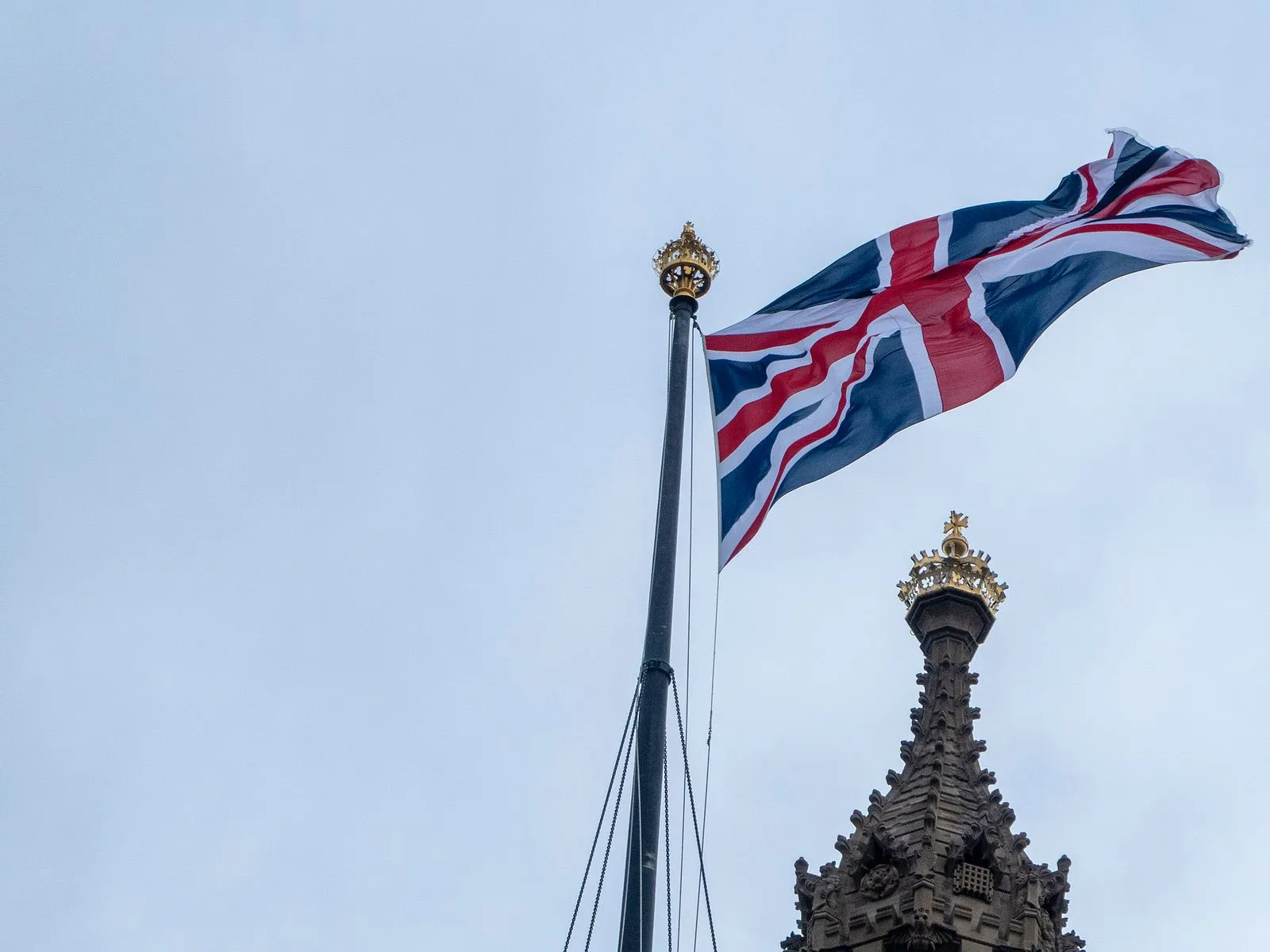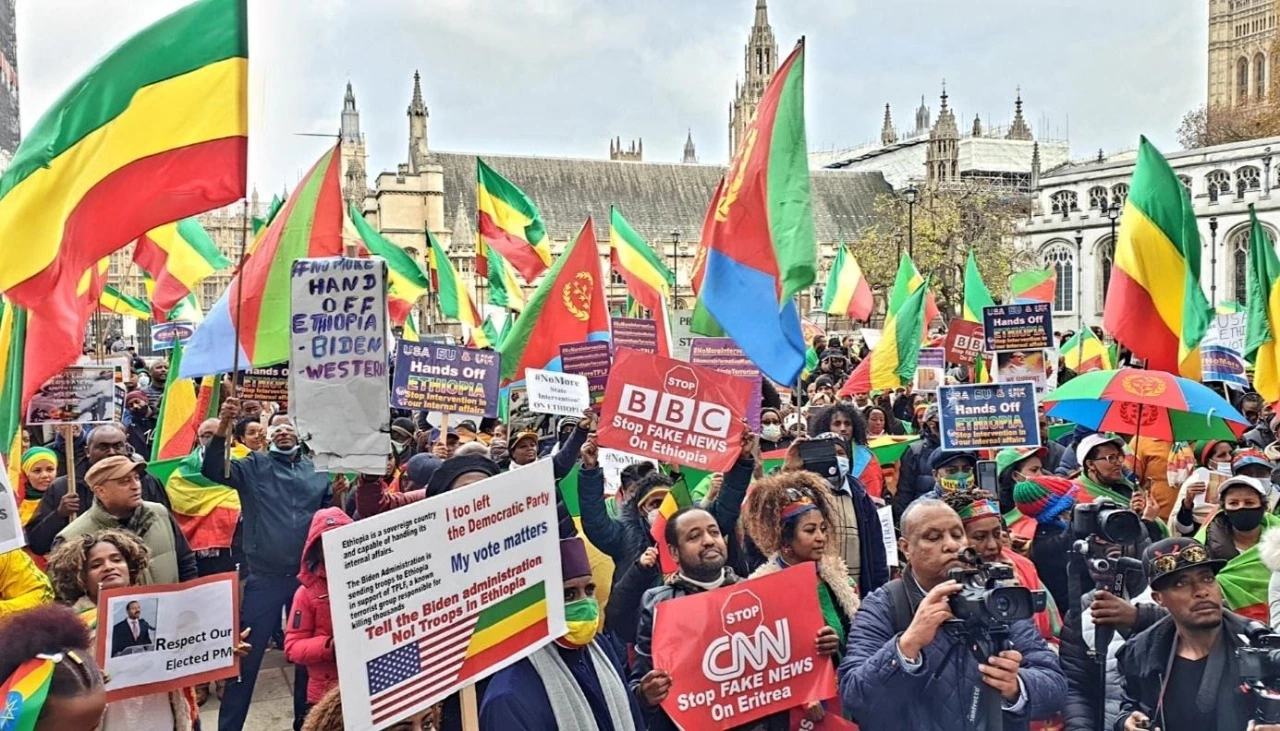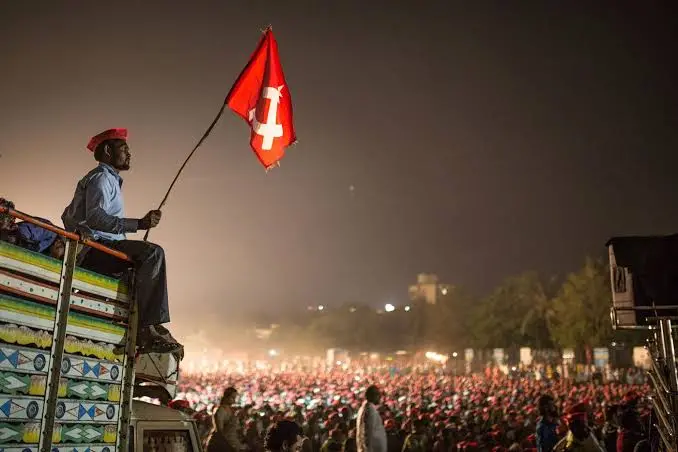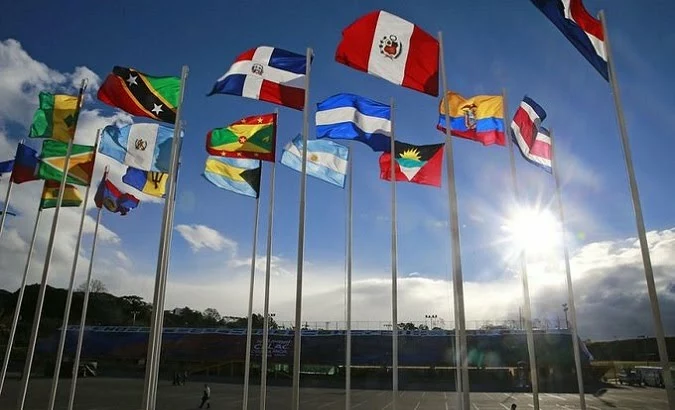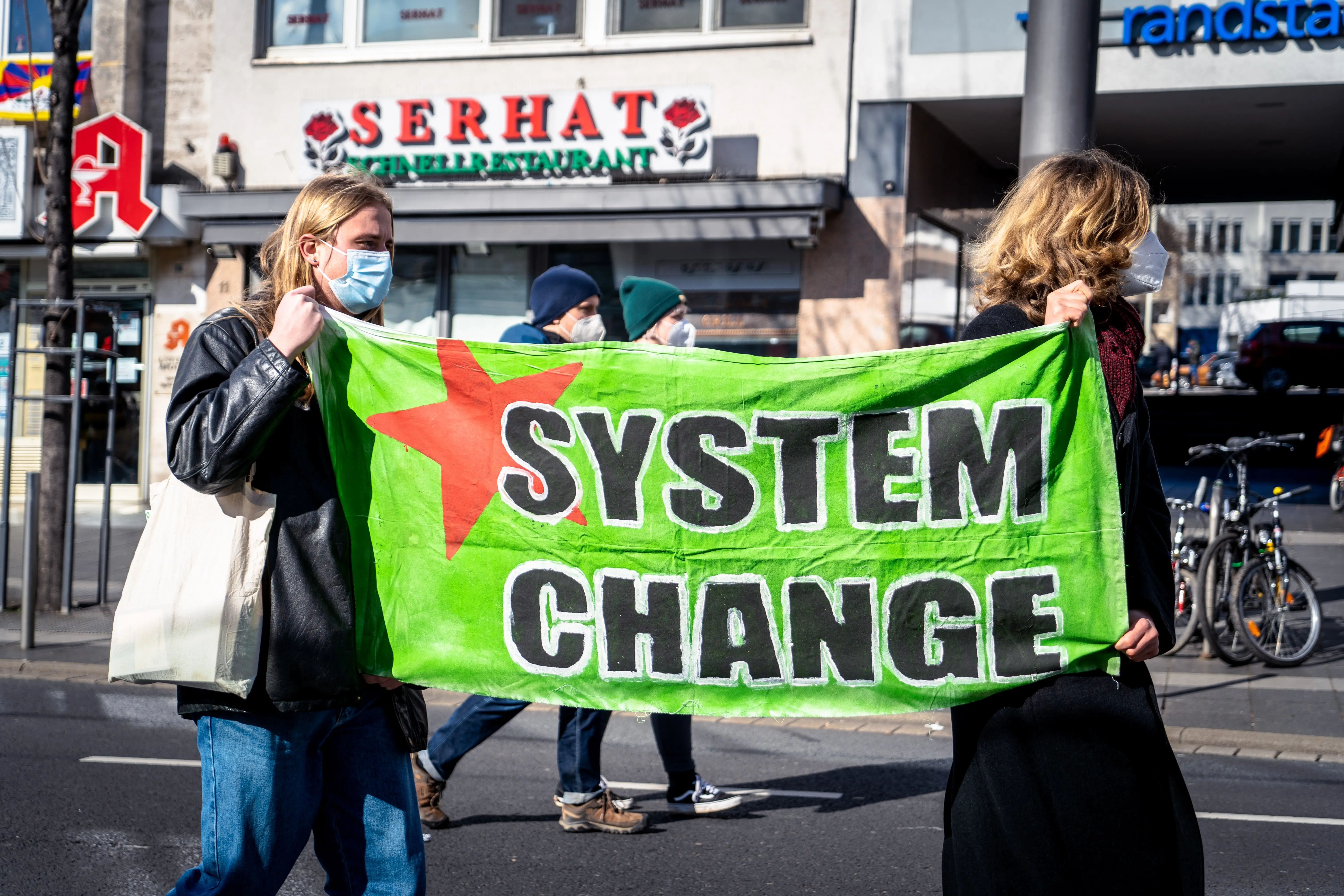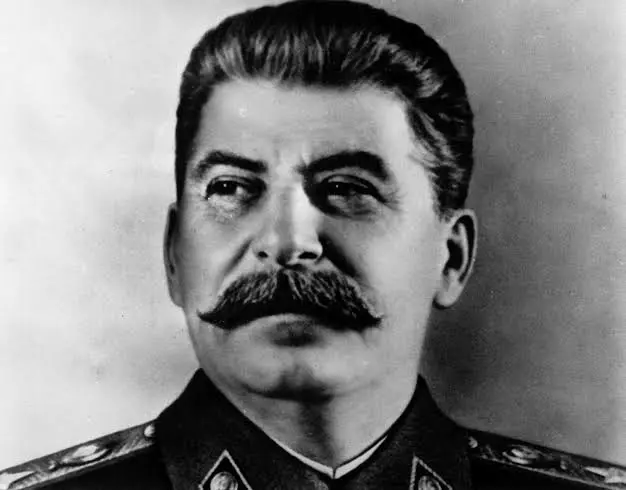The interview was conducted by Denis Rogatyuk, international director of El Ciudadano media platform.
Denis:
So here we are with Alex Gordon, the president of the Rail Maritime and Transport Union of the UK. I would like to start with a bit of summary of what the strikes - going back to when they started, what were the initial demands and how did it really escalate to being one of the biggest waves of industrial action in the UK in recent years?
Alex:
Well, you're right that the last 18 months in Britain has been the highest number working days lost to strike action for almost 40 years.
There was a public sector workers strike in 2010, 2011, just after austerity, which was a very short but very well-supported strike. But that was really just a very brief phenomenon. The qualitative difference between what is happening in Britain today and anything that has happened since the 1984-85 miners’ strike is that this is a prolonged and continued period of resistance led by organized labour, led by organized workers in trade unions, particularly the industrial trade unions, by which I mean the trade unions that organize workers sectoral across transport ports, communications industries, health, education.
But it's also been more widespread than just those big sectors. We've seen lots of strike action in the private sector, in small factories or in parts of the service economy as well. And even the civil servants have been taking prolonged strike action. So this is a very unusual period in Britain.
It's out of the ordinary from Britain's normal industrial relations scene. And it started really on the back of the recovery from COVID-19 and the beginning of the opening up of the economy after the lockdown. And of course, what was immediately apparent was that the largest employers in Britain had a radical policy for reducing wages and using the economic lockdown of COVID to attack long standing working conditions, including trade union collective agreements.
And so towards the end of the COVID pandemic, a phenomenon that we called the fire and rehire, where employers, very big employers, were giving redundancy notices to their staff, to their workers, and then reemploying them on lower wages, worse working conditions, and claiming that they had to do this because they were so poor after the experience of COVID.
The reality was that British corporate and banking monopolies were provided with taxpayers’ money, with state aid, all the way through COVID. Their bank balances grew. There was never a question of them being bankrupt and this is simply an indication of the ferocity and the desperation of the British corporate class and their needs to constantly try to increase their profits at the expense of their workers and of consumers.
So that was the first sign that we were going to be going into a period of sharpened class conflicts. The British Conservative government in late 2021 then let it be known that they were going to make sharp cuts to public spending, which they justified by saying that they had had to spend money on keeping companies in profit during COVID.
So it was a double whammy. On the one hand, the employers were saying, we're going to cut your wages. On the other hand, the government was saying we're going to cut the social wage. And what this led to in the transport industry in particular was around about we've calculated around about £4 billion sterling of direct cuts to transport services.
Half of that was around £2 billion was cut from the budget of the London Transport. The London Transport Network in particular, the London Underground, what we call the tube, around about £2 billion was cut from the National Rail network. The direct impact of those cuts was that none of the employers, none of the private train companies, which are completely controlled by this by the Department of Transport, to make an offer of pay increases as we went into 2022. The rate of inflation in Britain rose to double figures and between the summer of 2020 to until just very recently, we've had double digit inflation for most of that period in Britain. So in real terms, workers, transport workers in the railways and bus industry in London underground, the other areas who had not had a increase in their pay since before COVID were then being attacked by inflation.
And this was causing what we labelled a cost-of-living crisis. The cost-of-living crisis probably affected wages in Britain to the extent of around about a 25% wage cut during this period. So there's been a real fall in living standards for organized workers. Our response to that in May and June of 2022 was to launch the first national rail strike covering all of the privatized railway companies in Britain since the period of since the period of the 1980s.
In the 1980s, we had a nationalized state-owned rail network, British Rail. Now we have a fragmented and privatized rail network. But my union organizes all workers across the rail industry. We organized coordinated strike ballots throughout the rail sector and we won them all. And we called unified Strike action in June 2020 to across Britain.
And this had a catalytic effect on the labor movement generally. And we saw almost immediately what we had expected to see was what normally happens when we go on strike, which is that we are targeted by the right-wing media and the press by right wing politicians, and we are demonized. What actually happened was that we received massive public support and a series of other unions joined us.
So the Communication Workers Union, which organizes workers in the post office and the Postal Service and also telecoms workers, they came out on strike alongside us. The other rail unions eventually joined us. There were strikes taking place in the civil service, there are strikes taking place in the schools, strikes taking place by even junior doctors, by nurses. And the Nurses’ Union in England and Wales had never been on strike before.
It was the first time I'd ever called strike action. So there was a remarkable a remarkable explosion of industrial action. And that has been that wave has been running, continuing to reverberate really since June of 2020 to even up to today.
So we've re balloted again just two weeks ago and won a 90% yes vote for strike action. So we are still in dispute, we’re still fighting. We've just had a big victory in our campaign to prevent the government from closing railways ticket offices. This has been a an interesting this has been a very interesting campaign, a very unusual campaign.
I mean, the transport workers can be very effective industrially because you can stop trains. The second is that the issue of public transport is a touchstone issue for neoliberalism and for consumers. And what we've seen in the last couple of months, in the last four months in Britain, is that the Conservative government came forward with a proposal to close about a thousand railway station ticket offices across our network in order to save in order to save money on wages.

Yes, this would have had a very negative effect for rail users who wanted to buy cheap tickets, reduced rate tickets, but also for people who need assistance, people with disabilities, anyone who doesn't speak English very well, even people who do speak English, can't understand our very complicated railway network. So it was a big attack on consumers as well as an attack on workers.
And we were able to create a very popular campaign to resist the government's proposals that initially took the form of encouraging demonstrations and protests outside railway stations, which were supported by other trade unions, by women's organizations, by school students, organizations, by disabled people's organizations. We encouraged as many people as possible to write into the government consultation process, rejecting the proposals.
We know that around 750,000 responses were received to the proposals. 99.9% of them were calling for the proposals to be withdrawn. We had mass support from organizations representing disabled people, blind people's organizations, disabled travelers, organizations, all sorts of commuter organizations. And the outcome of that in the last week has been that the government has now backed off and withdrawn the proposals.
It's only a temporary victory, but it is a victory and it's an important victory because it is emblematic of this new popular basis and popular in the sense of people like it, but also popular in the sense of this alliance between industrial workers in trade unions and consumers, working class people who are effectively consumers and are being presented with this fait accompli from the big corporations and the banks and the government that your prices must go up because the country is bankrupt.
We cannot afford to provide social services, we cannot provide food to provide public transport services. We cannot afford to provide any services for the people because we are too poor. And of course, this is a huge lie. There has never been a time in the history of capitalism when profits have been as high as they are today and the companies making the biggest profits are many of the British companies listed on the UK stock market. The big monopolies, the banks, the big energy companies, the most profitable companies in the world.
Denis:
I also wanted to ask what kind of other international solidarity have you received from other trade unions in Europe, North America and in your opinion, how can this help them, this industrial action? how can you translate that into political action here in the UK to send a message?
Alex:
Well, the first question about international solidarity, yes, the struggles that have been taking place in the UK have been very widely publicized and I think there's a quite a high degree of awareness in the international labor movement, at least of what is happening here.
It's also true to say that it hasn't just been happening in Britain. We saw in 2022 rail workers in the United States tried to take strike action and was banned by President Biden. Yeah, we've seen in France large scale strikes since COVID. In Germany, the transport unions have taken strike at national strike action in the form of what the Germans call the German unions call warning strikes.
The Austrian Railway Workers Union in 2022 had a national strike in October 2022 for the first time in 50 years. It was a strike over wages. So this is not just a phenomenon taking place in Britain. It's much more widespread than that. It's taking place across a lot of the developed economies. These and so it's quite interesting to discuss why that might be taking place.
One possible reason may be that we're living in a post globalization era when the big imperialist forces in the world economy have moved away from an idea of globalization and are moving more towards protectionism. And you can see the breakdown in world trade relations between the US and EU and Russia and also between the US and China. So this is a phenomenon which I think we need to analyse because it feeds into industrial relations in our own in our own countries.
But the support that we've had has been enormous from the strikes by the railway workers in Britain really seemed to touch the heart of workers all over the world. I was receiving letters from Indian MPs, members of Parliament in India, Communist MPs sending us messages of support. Messages from Latin America, from trade unions in Argentina were sending us messages of support.
And we've had messages of support from unions, trade, transport, trade unions across the world. We know that there's been a massive appreciation of the struggles that are going on here and we're very aware of that and we tell our members about it because many of them, of course, come from those countries. We have a very international membership, a very international workforce.
The word that is used in human resources management is a diverse workforce, but it's an international workforce. It's people who come from Bangladesh whose parents come from Bangladesh or come from India or come from Pakistan, Sri Lanka, people who come from Africa, West Africa, East Africa we have and from Latin America as well. So we have an international membership here in Britain.
It's a very international union, the RMT, and it's important that our members know that the organizations from the countries that their parents came from, organizations of the working class there are looking at them and are in solidarity with the struggle.
Of course the British political system is has been highly resistant to real political change, its electoral system based on first past the post. So there is no proportional representation in the national Parliament, although there is in the parliaments in Scotland and Wales. And of course the most remarkable feature of it is that a large part of the British democracy is not democratic at all.
So the second chamber, the Upper House, the House of Lords, are not elected, they're appointed. And of course we have a hereditary head of state as well. So it's not a democratic system in the true meaning of the word. And to try to break into that is difficult. And I think that my union, my union or the forerunner of my union founded the British Labour Party in 1899, and we were then expelled from the British Labour Party in 2003 when Tony Blair was prime minister, because we stood candidates, we supported candidates, socialist candidates against Labour candidates during the Iraq war and then we have an independent industrial and political line with socialists, and we need to develop a political response that goes into the realm of electoral politics. But it's very difficult in Britain. I don't think it can be done by one trade union. It needs to be part of a popular front that goes even beyond the industrial working class to other sections of society. So common, popular demands trying to develop that is really the question that we are all grappling with.
I mean, I would say that it probably won't happen around domestic issues on our own. In other words, around the question of prices in the shops for falling wages and rising inflation, wages, price, and profits on their own are not enough to create a new political party. But imperialism is creating global instability on a scale that we've never seen before.
And the threat, the common threat of war, the genocide going on in the Middle East at the moment in Gaza would be one example of that. But the threats, NATO's proxy war in Ukraine, the constant ramping up of threats against China from the US and from elements in the British state, all of these are the basis, I think, for a break with the existing political order in Britain.
And when you add together the economic conditions the that are making workers revolt against the conditions of employment and the social conditions. And you add to that the crisis that imperialism is driving both in the sense of constant war, but also the sense of the climate crisis and the spoliation of the planet. And that could be the basis for a new political development.
Editor's Note:
The views and informations expressed in the article are solely those of the author and may or may not reflect the views of The International. We believe in providing a platform for a range of viewpoints from the left.
"The International" belongs to you.✕
Please take a moment to read this. We apologize for any interruption, we want you to know "The International" seeks your valued support at this time. We've proudly served as a pioneering online platform, delivering ad-free media content. With only 2% of our readers opting for a subscription, any contribution you choose holds immense significance—whether it's an annual fee of $25 or a monthly payment of $2.5. — The "The International" Team, committed to providing you with enlightening perspectives. We want to highlight that this sum is even less than what you'd spend on a cup of coffee, yet it greatly aids in sustaining our efforts to perpetuate and enhance your esteemed initiative.
